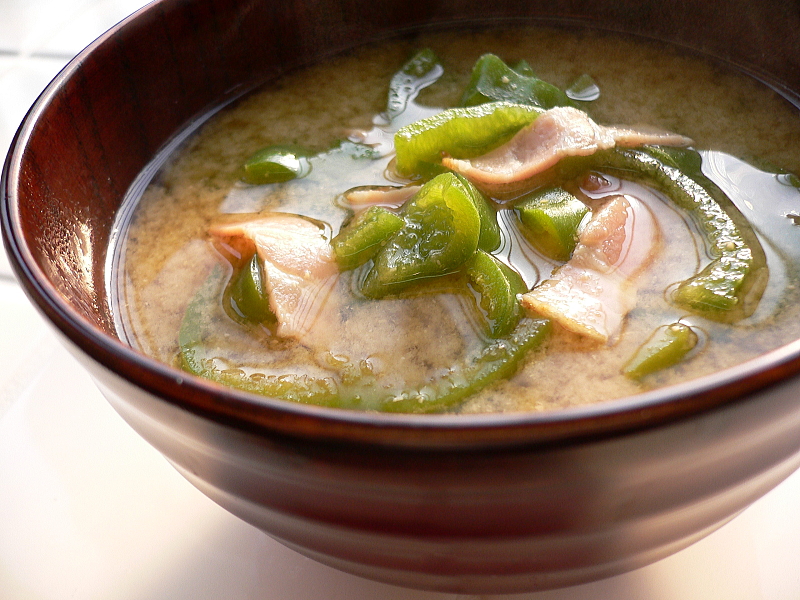Miso soup, a staple of Japanese cuisine, offers more than just comfort in a bowl; it represents a rich tapestry of tradition, nourishment and the art of simplicity. With its origins deeply rooted in Japan’s history, miso soup is a testament to the refined elegance and depth of Japanese culinary culture, encapsulating the harmony between nature and culinary craftsmanship.
The journey of miso soup begins with miso, a fermented soybean paste that is the heart of this soul-warming dish. Miso’s origins can be traced back to ancient China, but it was in Japan, around the 7th century, that miso found its spiritual and culinary home. The art of miso fermentation, honed over centuries, became integral to Japanese cuisine, offering a spectrum of flavours from sweet to savoury and colours from white to deep red.
Miso soup is a delicate blend of miso paste with dashi, a broth typically made from kelp (kombu) and bonito fish flakes. This combination creates a soup that is both rich in umami and comforting to the soul. The inclusion of various ingredients such as tofu, seaweed and green onions adds layers of texture and nutrition, making miso soup a versatile dish that accompanies meals from breakfast to dinner.
The simplicity of miso soup belies its cultural significance. It is a dish that has nourished samurai and peasants alike, served in temples and royal courts, symbolising the unifying essence of Japanese cuisine. Miso soup is more than food; it is a ritual, an offering, and a daily reminder of the changing seasons and the gifts of the earth.
In the modern era, miso soup has transcended national boundaries, finding a place in the global culinary landscape. Its health benefits, rich in probiotics, vitamins and minerals, have garnered attention, making it a favourite among those seeking wellness and a taste of Japanese tradition. The international appeal of miso soup is also a reflection of the growing interest in Japanese culture.
As miso soup continues to warm hearts and bodies around the world, it serves as a bridge between cultures, inviting all to partake in the rich culinary heritage of Japan. In the end, miso soup embodies the essence of Japanese cooking: respect for ingredients, meticulous preparation and the celebration of flavours that are both subtle and profound. It stands as a culinary emblem of Japan, a warm embrace from a culture that has mastered the art of bringing simplicity and depth to the table.







Click here to change your cookie preferences